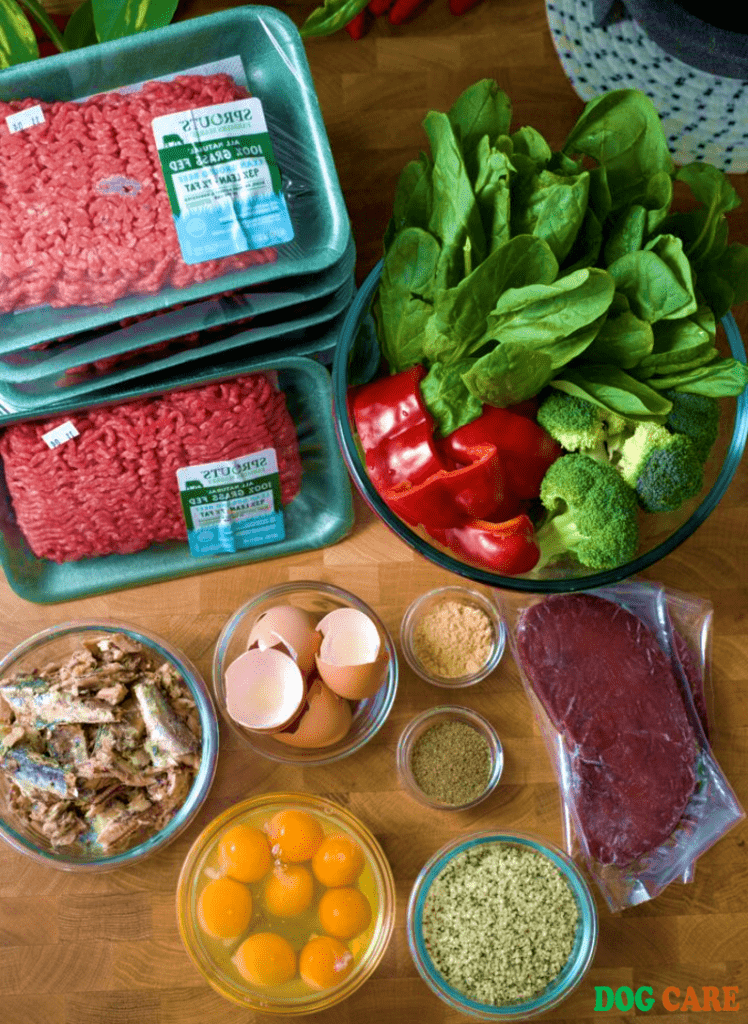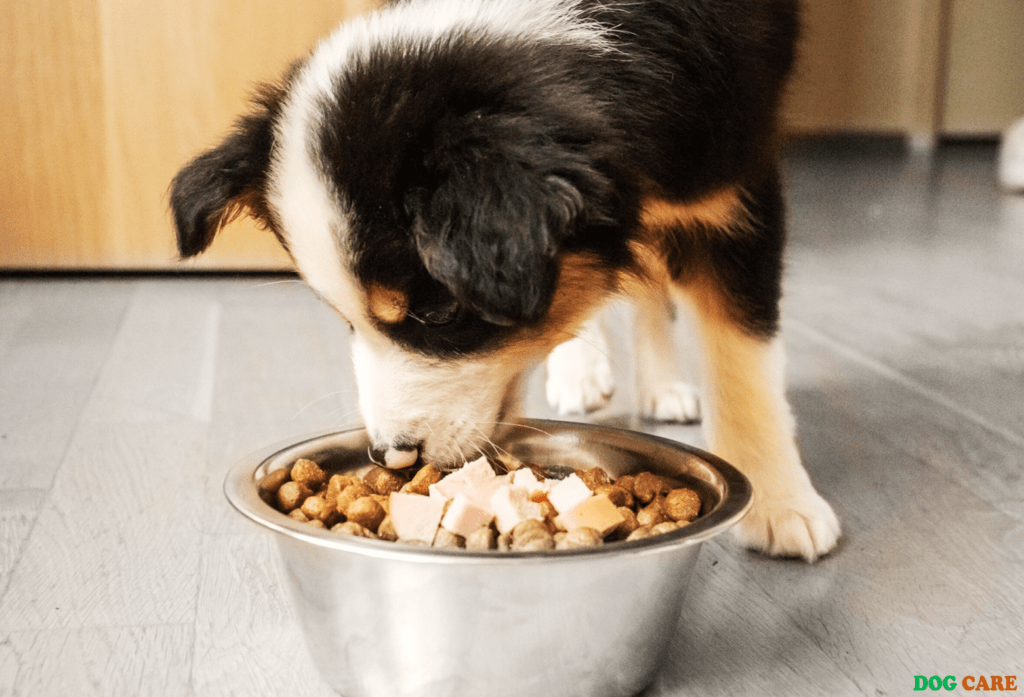Dog Stomach Gurgling Eating Grass: If your dog’s stomach is gurgling and they are eating grass, it may indicate an upset stomach. Grass can help soothe their stomach and bring down pH levels, easing pain and symptoms.
Dogs instinctively eat grass when their stomachs are upset to find relief. They may exhibit signs of an upset stomach through stomach gurgling, vomiting, or diarrhea. Seeking veterinary care is recommended for serious symptoms like extreme lethargy or appetite changes.
Grass consumption by dogs is often a natural response to stomach discomfort, calming their digestive system. However, persistent stomach gurgling should be monitored closely as it could signal underlying health issues that need attention. Observing your dog’s behavior can provide valuable insights into their well-being and potential health concerns.
Understanding Dog Stomach Gurgling
Does your dog’s stomach gurgle when it eats grass? This is quite common and can be a sign of stomach upset. Eating grass can help soothe the stomach by bringing down the pH level and alleviating symptoms. However, if your dog appears sick or exhibits other alarming symptoms, it’s best to seek veterinary care.
Possible Causes Of Dog Stomach Gurgling
There are several potential reasons for stomach gurgling in dogs, including: 1. Digestive Upset: Sudden changes in diet, eating too quickly, or consuming indigestible items can lead to digestive upset and subsequent stomach gurgling. 2. Hunger: A dog’s stomach may make gurgling noises when hungry, similar to how human stomachs growl. 3. Gastrointestinal Issues: Underlying gastrointestinal conditions such as irritable bowel syndrome or inflammatory bowel disease can cause stomach gurgling. 4. Parasites or Infections: Intestinal parasites or infections can lead to stomach gurgling as a symptom of an underlying health issue. Signs to Watch Out For
Signs To Watch Out For
It is crucial to monitor your dog for the following signs that may indicate a more serious underlying health issue: – Lethargy – Depressed appetite or thirst – Diarrhea – Vomiting If any of these symptoms are observed, it is essential to seek veterinary care immediately. Additionally, frequent stomach gurgling should prompt a visit to the veterinarian to rule out any potential health concerns. In conclusion, understanding the causes of dog stomach gurgling and observing any concerning symptoms is crucial for your pet’s overall well-being. While occasional stomach gurgling is normal, persistent or severe gurgling may indicate an underlying health issue that requires attention. You can ensure the best possible care for your furry companion by staying vigilant and seeking prompt veterinary care when necessary.
The Link Between Eating Grass And Stomach Gurgling
Dogs eating grass is a common behavior that has puzzled pet owners for years. One intriguing aspect is the correlation between this behavior and stomach gurgling. Let’s explore why dogs eat grass and its impact on their stomach health.
Why Do Dogs Eat Grass?
- Dogs may eat grass to soothe an upset stomach.
- Grass contains fiber that can aid in digestion.
- It is believed that dogs instinctively eat grass to settle their stomach.
Effect Of Eating Grass On Dog’s Stomach
When dogs have stomach gurgling and show signs of discomfort like vomiting or diarrhea, they may eat grass as a natural remedy. Grass can help lower the stomach’s pH level, relieving and reducing symptoms. However, persistent stomach gurgling should be monitored closely as it could indicate a more serious underlying health issue.
Handling Dog’s Upset Stomach
If your dog’s stomach is making gurgling noises and eating grass, it is a clear sign that it is upset. While eating grass might seem unusual, it is a common behavior for dogs when they are feeling unwell. Grass contains fiber, which can help soothe stomach problems. It also helps to bring down the stomach’s pH levels, providing relief from pain and other symptoms. However, properly handling your dog’s upset stomach is essential to ensure their well-being.
Home Remedies For Dog’s Upset Stomach
If your dog is experiencing an upset stomach, there are a few home remedies you can try to help alleviate their discomfort:
- Offer bland food: Feed your dog a bland diet, such as boiled chicken or white rice, to help ease their digestive system.
- Provide plenty of water: Make fresh water readily available for your dog to drink to ensure its well-being.
- Include probiotics. Probiotics can help restore the balance of healthy bacteria in your dog’s gut and improve its digestion.
- Consider herbal remedies: Herbs like ginger, chamomile, and peppermint can have a soothing effect on your dog’s stomach. Consult with your veterinarian for appropriate dosages and administration methods.
When To Seek Veterinary Care
While most cases of dog stomach upset can be resolved with home remedies, there are situations where you should seek veterinary care:
- If your dog is lethargic, showing a significant decrease in appetite or thirst.
- If they have ongoing diarrhea or persistent vomiting.
- If signs of distress or pain accompany their stomach gurgling.
- If you notice any abnormalities in their behavior or overall health.
Remember, your dog’s health and well-being should always be your top priority. If you have any concerns about your upset stomach, it is best to consult with a veterinarian to ensure proper care and treatment.
Understanding The Behavior Of Dogs Eating Grass
Dogs are known to engage in peculiar behavior at times, one of which is eating grass. This behavior can leave pet owners puzzled and concerned. While the exact reason behind this behavior is not fully understood, various behavioral and medical reasons can shed light on this common canine habit.
Behavioral Reasons For Eating Grass
Regarding the behavioral reasons for eating grass, it is essential to understand that dogs might consume grass due to instinctual behaviors. In the wild, canines supplement their diet with plant matter. Therefore, the behavior of grass consumption might be a remnant of their wild ancestry. Additionally, some dogs may enjoy the texture and taste of grass, prompting them to indulge in this behavior occasionally.
Medical Reasons For Eating Grass
In addition to behavioral factors, medical reasons may influence a dog’s inclination to eat grass. If a dog’s stomach is gurgling and shows signs of digestive discomfort, they may try to self-soothe by consuming grass. This behavior could be an attempt to induce vomiting to alleviate stomach issues or to obtain fiber, which can aid in digestion and help to soothe the stomach. However, it’s important to note that persistent stomach gurgling or abnormalities in a dog’s behavior should warrant a visit to the veterinarian for a proper diagnosis.
The Role Of Nutrition In Dog’s Digestive Health
A dog’s digestive health is closely linked with its nutrition. Impact of Diet on Dog’s Digestive Health plays a crucial role in their overall well-being. Providing Ensuring Balanced Nutrition is essential to support a healthy digestive system.
Impact Of Diet On Dog’s Digestive Health
- Diet directly affects a dog’s digestive system.
- Inadequate nutrition can lead to digestive issues.
- Certain foods can trigger stomach problems in dogs.
Ensuring Balanced Nutrition
- Offer a balanced diet for optimal digestive health.
- Include high-quality proteins in your dog’s meals.
- Ensure the right balance of carbohydrates for energy.
Seeking Professional Advice
It’s important to seek professional advice when your dog experiences stomach gurgling after eating grass. Consulting a veterinarian and prioritizing regular check-ups are crucial for ensuring your pet’s well-being.
Consulting A Veterinarian
When your dog’s stomach gurgles after consuming grass, consulting a veterinarian is essential. It’s vital to seek professional guidance to understand whether the behavior is normal or indicative of an underlying health issue. Veterinarians can conduct thorough examinations to provide accurate diagnoses and recommend appropriate treatment.
Importance Of Regular Check-ups
Regular check-ups play a significant role in maintaining your dog’s health. By scheduling routine visits to the veterinarian, you can monitor your pet’s overall well-being, address any concerns regarding stomach gurgling, and receive valuable nutritional and digestive health advice.

Frequently Asked Questions
Should I Let My Dog Eat Grass When His Stomach Is Upset?
Yes, you can let your dog eat grass when their stomach is upset. Grass contains fiber that can soothe stomach problems and help settle the stomach. It’s thought that dogs instinctively eat grass to soothe and settle their upset stomach.
However, if your dog is producing loud intestinal noises and seems sick, it’s best to seek veterinary care immediately.
When Should I Worry About My Dog’s Stomach Gurgling?
If your dog’s stomach is gurgling and he seems sick, seek veterinary care immediately. Watch for symptoms like lethargy, loss of appetite, diarrhea, or vomiting.
What Can I Give My Dog For Gurgling Stomach Over?
To ease a gurgling stomach, give your dog a bland diet of boiled chicken and rice. Monitor for any worsening symptoms and consult a vet if concerns persist.
What Can I Give My Dog To Settle His Stomach?
To settle your dog’s stomach, you can give it a bland diet of boiled rice and chicken. Additionally, probiotics can help restore the balance of good bacteria in the gut.
Can I Let My Dog Eat Grass When His Stomach Is Upset?
Grass contains fiber that can help soothe stomach problems and lower the stomach’s pH level, alleviating pain and symptoms.
When Should I Worry About My Dog’s Stomach Gurgling?
If your dog produces loud intestinal noises and seems sick, seek veterinary care immediately. Symptoms to watch for include lethargy, loss of appetite, diarrhea, and vomiting.
What Can I Give My Dog To Settle His Gurgling Stomach?
You should provide your dog with a bland diet, such as boiled chicken or rice, to help settle its upset stomach.
Conclusion
If your dog’s stomach is gurgling while eating grass, it could be a sign of an upset stomach. If other concerning symptoms persist, consider consulting a vet for proper care. Understanding your dog’s behavior can improve health outcomes and well-being.


